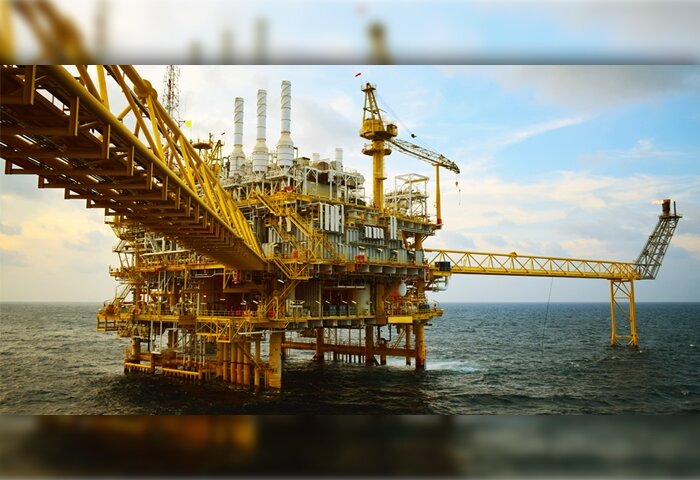In the Eastern Mediterranean, Greece, Cyprus, and Turkey are in an unpleasant stand-off that could turn into violence at any time over rights to drill for natural gas, knowing that gas is a fossil fuel which the world is trying to scrap. The three nations have been locked in a dispute over offshore energy rights and maritime borders in the region, with Ankara infuriating the EU allies by sending research ships with naval escorts to work in contested waters.
Yet, it is noteworthy that the conflict has been worsening lately and gaining momentum amid weak demand and price instability.
President Recep Tayyip Erdogan called on the EU to be “impartial” in the growing row over energy prospecting in contested eastern Mediterranean waters. In a phone call with Charles Michel, the European Council president in turn stressed the importance of de-escalating the conflict and called on Turkey to refrain from activities that fuel the tensions with rival Greece. During the call, the Turkish leader “invited EU institutions and member states to be fair, impartial and objective and to act responsibly on regional issues, particularly the eastern Mediterranean,” the presidency said, given the facts that Michel pledged that the bloc will defend the rights of member state Cyprus in its standoff with Turkey over maritime and energy rights.
Turkey's hunt for gas and oil reserves in waters claimed by EU member Greece has severely strained the relationship between the two NATO members and pitted Ankara against the EU bloc.
Mediterranean tensions ‘extremely volatile’
Recently, Turkey deployed its exploration vessel Oruc Reis in disputed waters between Cyprus and the Greek islands of Kastellorizo and Crete, and has since prolonged the mission three times. This has prompted Athens to stage naval exercises to defend its maritime territory. With such move, Erdogan warned Greece to enter talks about disputed eastern Mediterranean territorial claims or face the consequences: “They will either understand the language of politics and diplomacy, or on the field through bitter experiences,” he said.
The European Union's diplomatic chief Josep Borrell has mooted sanctions against Ankara at the upcoming meeting but so far France, which sent frigates and fighter jets to the region in support of Greece, has been unable to persuade other EU nations to join its hardline response.
As the tension ran high, Turkey's armed forces began annual exercises called “Mediterranean Storm” in the breakaway republic of northern Cyprus – an entity recognized only by Ankara. On a quick note, Cyprus is divided between the Greek Cypriot-run south – an EU member state – and the Turkish Cypriot north.
Greece and Turkey have come to the brink of war three times since the mid-1970s, including once over exploration rights in the Aegean Sea. And since its invasion in 1974, Turkey has stationed tens of thousands of troops in the north of the island, which followed a coup engineered by military rulers in Athens.
Cypriot President Nicos Anastasiades denounced Turkey's “aggressiveness” and urged talks to resolve a row over maritime borders and gas drilling rights, warning spiraling Mediterranean tensions risked destabilizing the region. “There is an aggressiveness, with an intention to control the whole area actually. So we are experiencing a growing tension, and the situation that evolves is extremely volatile and worrisome,” Anastasiades said. However, amid fears of open conflict, Anastasiades stressed that if the United Nations and the international community took the necessary steps “we might avoid any further escalation.”
Turkey ready for talks, Greece not so much
Tensions are running high over Turkey's maritime drilling activities in the eastern Mediterranean which Cyprus, and its ally Greece, say violate their sovereignty.
Open for negotiations, Ankara said it backed the idea of talks at NATO. “This initiative is supported by our country,” the Turkish foreign ministry said in a statement. “We expect Greece to support the NATO secretary general's initiative.”
The Turkish statement stressed that the talks would only focus on avoiding accidents and not resolving the sides' differences over maritime borders and energy exploration rights. But observers still hope the talks will create an opening for further dialogue in a conflict that threatens to impede Europe's future access to a wealth of natural gas reserves.
According to Alliance chief Jens Stoltenberg, the two neighbors agreed to enter “technical talks” designed to avert accident between their navies that could trigger a broader conflict.
“Following my discussions with Greek and Turkish leaders, the two allies have agreed to enter into technical talks at NATO to establish mechanisms for military de-confliction to reduce the risk of incidents and accidents in the eastern Mediterranean,” Stoltenberg said in a statement.
“Greece and Turkey are valued allies, and NATO is an important platform for consultations on all issues that affect our shared security.”
Later after the announcement, Greece denied it had agreed to hold NATO-brokered talks with Turkey.
“Published information claiming Greece and Turkey have agreed to hold so-called ‘technical talks’ on de-escalating tensions in the eastern Mediterranean do not correspond to reality,” Greece's foreign ministry said. The ministry adds that the only way de-escalation is happening is with the immediate withdrawal of all Turkish vessels from the Greek continental shelf.
Nevertheless, after half a dozen meetings at NATO headquarters, good progress was reported in the horizon regarding military talks between Greece and Turkey aimed at avoiding clashes in the eastern Mediterranean. “These meetings are ongoing and good progress has been made,” Stoltenberg said after talks in Brussels with the Spanish Prime Minister Pedro Sanchez. “These are technical military talks. They complement the diplomatic efforts led by Germany to resolve the underlying dispute.”
Did the withdrawal happen?
On September 14, Turkey pulled out an energy exploration vessel of waters claimed by Greece. Greek Prime Minister Kyriakos Mitsotakis welcomed it as a “positive first step”. However, Turkish Foreign Minister Mevlut Cavusoglu said it would be a “mistake” for Greece to interpret the Oruc Reis's withdrawal as a step back by Ankara.
“This is routine maintenance and (crew) replenishment work,” Cavusoglu said in a televised interview. “Greece can perceive it as a step back in the face of our determination,” he said. “It is suffering the insecurities of a small country.”
The Turkish energy ministry said in a separate statement that after undergoing “examination and care, the vessel will continue its seismic search and research activities”.
The escalating row has seen Germany try to mediate a solution and NATO host consultations aimed at avoiding the two alliance members accidentally going to war – as they almost did over a few contested islands in 1996.
Disputed map
Ankara is frustrated that Greece is using its far-flung eastern islands to claim control over waters near the Turkish shore.
US Secretary of State Mike Pompeo said in Cyprus that Washington was also “deeply concerned” by Turkish exploration “in areas over which Greece and Cyprus assert jurisdiction”.
Turkey directs much of its fury at the so-called “Seville map” that Greece uses to justify its claims.
The map was drawn up by Spain's University of Seville on commission from the European Union in the early 2000s. It suggests granting full economic zones to Greece's small islands in the Aegean and eastern Mediterranean Seas. Turkey says the map breaches its sovereignty and contradicts past examples of countries' distant islands not being given full economic zones.
Cavusoglu called the map “the cause of all the tension”. The two sides could enter direct negotiations “if (Greece) gives up its maximalist demands. It could forgo the Seville map,” Cavusoglu said. “But there is no good will in Greece. We haven't seen it yet,” he added.
Will sanctions be applied?
Both Greece and Turkey have staged naval drills in the area to assert their sovereign claims to gas resources and exclusive economic zones, and the European Union warned Ankara to pull back or face EU sanctions.
The Cypriot president insisted his country did not want to see sanctions imposed on Turkey. “It is not our aim, the sanctions. Our aim is to see that through a dialogue we can reach a settlement which would be absolutely compatible with what the international law is saying,” he said.
He urged Turkey to agree to either take the matter to the International Court of Justice in The Hague, or to international arbitration.
“They have to realize that they have to abide by the international law, not to interpret the international law according to their own expansionism,” Anastasiades said.
The EU threatened to put sanctions on Turkey if it refuses to solve the dispute through dialogue. The bloc's leaders will debate the crisis when they meet for a summit in Brussels in the coming days.
EU chief vows to defend Cyprus rights in Turkey standoff
The top EU official is in Cyprus ahead of an emergency meeting of EU leaders that will address Turkish actions in the eastern Mediterranean with sanctions a possibility. The visit of Charles Michel, the European Council president, to the island comes a day after Turkey said its Yavuz drillship would continue its search for oil and gas off Cyprus until October 12, despite international calls to withdraw.
“The European Union stands in solidarity with Cyprus as it faces a grave situation. That is why we have decided to call a summit on relations with Turkey,” Michel told reporters after meeting Cypriot President Nicos Anastasiades. “I believe we must be very firm when it comes to defending the rights of all member states, including Cyprus.”
Although Cyprus has been an EU member since 2004, its jurisdiction is not recognized by Turkey, which dismisses the island's internationally recognized government as an exclusively Greek Cypriot administration.
There have been fears of conflict erupting and Cyprus is pressing the rest of the EU to impose fresh sanctions on Ankara over the drilling.
Michel said Brussels did not want to send the message that this was a dispute involving only Greece and Cyprus with Turkey as it affected the “rights of the EU”.
Cyprus's president said Michel's visit comes at an “extremely worrisome” time as “Turkey continues to violate our maritime zones” with “illegal” drilling. He said the bloc should show its readiness to take action to protect its members' rights.
Turkey said the Yavuz will be accompanied by three other Turkish ships, according to a maritime notice that added “all vessels are strongly advised not to enter” the area.
Nicosia said such maritime notices within its jurisdiction were illegal.
Turkey insists that the minority community's interests must be protected and has called for the exploitation of offshore oil and gas reserves to be put off until an agreement on reunifying the island has been reached in UN-backed talks.
Drill vessels, tensions, talks, and mediations: a lot going on despite the fact that the main reason behind these instabilities is a harmful fossil fuel that is neither environmentally sustainable nor a profitable business proposition for the region. The EU could play a constructive role in the Greece-Turkey conflict by helping the parties declare a moratorium on exploration and twist their focus to renewable energies.
With this step, the source of conflict would be eliminated as well as Europe’s long-term goal to rein in greenhouse gas emissions would be served.
Greece, Cyprus, and Turkey have massive favorable conditions for clean energy generation – which they should exploit, with as much help from the EU as possible, rather than fighting over gas fields that will issue nothing but problems for years to come.










